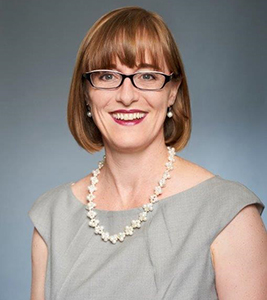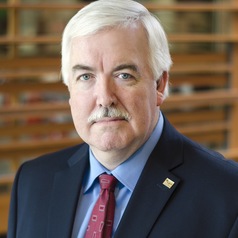CPA Standoff: Why haven’t the other provinces joined the accounting rift?

Critics believe the rift represents a threat to a national unity in the Canadian accounting profession and the merger of three designations into the CPA brand
Note: This is the fifth and final article in a five-part series.
OTTAWA, October 19, 2023 – Much of the attention devoted to the standoff between the national and the two provincial accounting bodies has focused on the complaints of CPA Ontario and CPA Quebec. Yet no other provincial or territorial body (PTB) has indicated an intent to leave the Collaboration Accord if there is no path forward with Ontario and Quebec, points out Pamela Steer, president and CEO of Chartered Professional Accountants of Canada.
 |
Pamela Steer, FCPA, FCA, is the president and CEO of Chartered Professional Accountants of Canada. |
Steer notes that she has personally fielded “hundreds” of calls, emails, and other communications from members in Ontario and Quebec, expressing concern about their respective organization’s decision, and asking what they can do about it.
CPA Alberta and CPA BC were asked by Canadian Accountant why they are not joining with their provincial counterparts in Ontario and Quebec in announcing a termination with CPA Canada under the present arrangement.
"CPA Alberta is not directly involved in this issue; we remain neutral and take no position on this matter,” said Joanne Rosnau, senior vice president of communications and recruitment at CPA Alberta in Edmonton. “CPA Alberta continues to be focused on protecting the public through the regulation of CPA members and students, and CPA members in Alberta will continue to serve their clients without impact or interruption. We value and remain committed to working in partnership with all CPA bodies in Canada," she added.
CPA BC echoed the same themes as its Alberta counterparts in a released statement which said they were not directly involved in this issue, remained neutral, with a continuing focus on protecting the public through regulation, and commitment to working in partnership with all Canadian CPA bodies.
The leaders of CPA Ontario and CPA Quebec, Carol Wilding and Genvieve Mottard respectively, both say there are no specific accounting-related issues precipitating Ontario and Quebec’s respective decisions to leave the present Accord.
For example, “We are and remain very committed to the Competency Map,” says Wilding. “Ontario and our team has played a very significant role in the development of that, as have others across the country.”
A threat to the national unity of the CPA profession?
If Ontario and Quebec ultimately sever their relationship with CPA Canada through the Accord in 2024, that would collectively eliminate about 64 per cent of the present Canadian membership. That threat to national unity in the accounting profession is a major concern all across Canada.
The certified general accountant, certified management accountant, and the chartered accountant professions all merged in 2012-13. The CA, CGA, and CMA designations were folded into a new designation: chartered professional accountant (CPA). The entire rationale for the merger was for Canada to have a fully effective, international voice with one body.
 |
Steven Salterio is the Smith Chair of Accounting and Auditing at Queen’s University’s Smith School of Business. |
“It was a highly persuasive argument, because there are only a handful of countries in the world that operate like Canada did with multiple professional bodies claiming the same breadth of practice rights,” explains Steven Salterio, the Smith Chair of Accounting and Auditing at Queen’s University’s Smith School of Business.
More importantly to the individual members, much of the respect that Canada has earned internationally is due to Canada having one of the few professional accounting bodies left in the world that sets the country’s auditing and accounting standards, he added.
Wilding says CPA Ontario has “an unwavering commitment” to one designation, and to the unification of the accounting profession under the CPA designation.
“Unification was done for all the right reasons across Canada. It does not and will not change as a result of this decision. We are, and always have been, and remain Canadian CPAs. That’s because each of us in provincial bodies has agreed to recognize each other’s members and allow them to practise anywhere in Canada, as well as uphold the standards,” she elaborated.
Unification of the profession was undertaken for the right reasons and it was made in the best interests of the protection of the public, says Mottard, who added that the Quebec CPA Order remains committed to a unified profession and continuing “to work with all our colleagues across the country to uphold the same standards for the profession.
“The title in unification is enshrined in law and it is no way in jeopardy because we choose to work differently with CPA Canada,” she added.
Wilding says conversations have already begun with CPA Ontario’s provincial and territorial counterparts to try and determine a new approach to national collaboration. “We want to make sure it’s a smooth transition,” she adds.
However, CPA Ontario will not be returning to the terms of the existing Collaboration Accord, Wilding adds, noting that “we are committed to finding a new, better way to work together.”
“Unity has never been more important, given the complex global challenges facing our profession and our economy,” says Steer. “We are fully committed to evolving our plans and our processes to working collaboratively with all our members and PTBs and stakeholders for the betterment of the profession.”
But she admits there is unchartered territory ahead if the terms for a new Accord cannot be reached with Ontario and Quebec. “The Collaboration Accord says that you can withdraw, but it doesn’t really specify the how. [Ontario and Quebec] have signaled intent. We still have to figure out what that means in reality as we move towards that and find a new path together,” Steer adds.
Steer notes that the internal Canadian Free Trade Agreement guarantees freedom of mobility between provinces but, if Ontario and Quebec terminate their Accord with CPA Canada, “it’s a little less certain with respect to international mobility how those agreements will move forward in the future.
“The withdrawal notices have plunged us into a place where there’s tremendous uncertainty. Work has got to be done to figure out what comes next. There’s no agreement that says ‘here’s what happens,’” she says.
“What is the cost to us, after all of this hard work that we have all put in together collectively if we stand apart now?” asks Steer.
CPA Canada and the provincial institutes in Ontario and Quebec need to renegotiate their relative positions, says Karim Jamal, a professor in the Department of Accounting and Business Analytics at the University of Alberta in Edmonton. Jamal believes the publicly announced split is an embarrassment to the Canadian accounting profession in the international community.
The profession “cannot let this occur. It would be a disaster,” he claimed.
Jeff Buckstein, CPA, CGA, is a freelance business journalist in Ottawa. Image: iStock composite. Read the entire CPA Standoff series:
Part One: CPA standoff: Ontario government sticks to sidelines in governance dispute.
Part Two: CPA Standoff: Financial transparency a key issue in national accounting rift
Part Three: CPA Standoff: Unique regulatory status of CPA Quebec complicates accounting rift
Part Four: CPA Standoff: Accountants question the motives behind national accounting rift
Part Five: CPA Standoff: Why haven’t the other provincial bodies joined the accounting rift?











(0) Comments